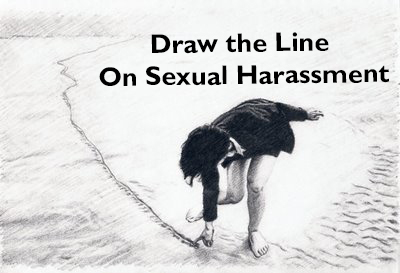
Given the gravity of the sexual harassment allegations
In Keron v Westpac Banking Corporation,[1] Deputy President Binet found that the dismissal of a Westpac employee was not harsh, unjust or unreasonable given the gravity of the sexual harassment allegations. Mr John Keron was dismissed from his employment with Westpac after 35 years of service after an internal investigation found that he had sexually harassed two female employees after an offsite workshop and social event.
Mr Keron was dismissed for two allegations. Firstly, Mr Keron was alleged to have groped a female co-worker on the buttocks and genital region. Secondly, Mr Keron called a fellow female employee several derogatory terms, such as “fucking idiot”, “whore” and “bitch”. The incidences led to Mr Keron being arrested after the first female victim reported the unwanted sexual touching to the police.
Ultimately, Mr Keron was dismissed for serious misconduct after the sexual harassment allegations were substantiated based on witness statements and CCTV footage. Mr Keron was found to be in breach of Westpac’s discrimination, harassment and bullying policy, the sexual harassment policy and the Code of Conduct. Subsequently, Mr Keron lodged an unfair dismissal claim in the Fair Work Commission, which was heard by Deputy President Binet.
Where a dismissal relates to an employee’s conduct, the Fair Work Commission must be satisfied that the conduct occurred and justified termination. The question of whether the alleged sexual harassment or misconduct took place and what it involved is to be determined by the FWC on the basis of the evidence in the proceedings before it. The test is not whether the employer believed, on reasonable grounds after sufficient enquiry, that the employee was guilty of the conduct which resulted in termination.
Misconduct justifying dismissal is conduct that is so serious that it goes to the heart of the contract
Misconduct justifying dismissal is conduct that is so serious that it goes to the heart of the contract. Where serious misconduct is alleged and termination is viewed as the only appropriate course of action, then the quality of the evidence needed to establish relevant facts on the balance of probabilities must be stronger in accordance with the principles in Briginshaw.[2]
In this case, Westpac had video footage of Mr Keron groping the first female and subsequent witness statements on which they substantiated the first allegation. In regards to the second allegation, Deputy President Binet held that it was probable that Mr Keron did use the derogatory language he was accused of, given many witnesses confirmed he used profanities in exchange with this female.
Mr Keron argued that the conduct for which he was dismissed did not occur in the course of his employment as it occurred outside of the workplace and therefore cannot form a valid reason for his dismissal because there is no evidence that his conduct will impact on his capacity to perform his duties. Further, the two females in the two allegations are no longer Westpac employees.
Not necessary that the relevant behaviour occur at the same physical location as the workplace or work function
Deputy President Binet held that it is not necessary that the relevant behaviour occur at the same physical location as the workplace or work function in order for there to be a sufficient connection with the employment for the behaviour to justify dismissal.
In Markham v GrainCorp Operations Limited,[3] a Full Bench of the AIRC held that the dismissal of an employee for sexually harassing a colleague outside working hours while staying in adjoining rooms in a hotel in which they had been accommodated while attending a training course was not unfair. The Full Bench considered the employees to have been “… put in a situation of proximity …” by virtue of their attendance at the training conference, rather than by a truly private choice, and that the conduct was therefore sufficiently connected to the employment relationship.
Ultimately, Deputy President Binet concluded that Westpac did have a valid reason for dismissal. Sexual harassment is a valid reason for dismissal. Her honour noted that the bar as to what constitutes consent for physical and sexual interactions has been significantly raised in the community since Mr Keron commenced his employment with Westpac in 1985. An even higher bar has been set for interactions occurring in work related environments. The media coverage and social discourse in relation to these issues has been extensive and unavoidable. This has placed those employed in Australian workplaces, including Mr Keron, on notice that their ‘social’ behaviour will attract greater scrutiny and face higher standards than in the past.

What is Sexual Harassment?
Whilst this case describes this conduct as sexual harassment, it does not define what sexual harassment encompasses. Sexual harassment, as defined under federal and state legislation, is unwanted or unwelcome sexual advances, requests for sexual favors or conduct of a sexual nature in circumstances which a reasonable person. This is having regard to all the circumstances, would have anticipated this behaviour to cause offense, humiliation or intimidation.
This means the conduct may not be directed towards you specifically, but if you find the conduct to be offensive or intimidating, it may still constitute sexual harassment under federal and state legislation.
Sexual harassment can take various forms. It can involve:
- unwelcome touching, hugging or kissing;
- staring or leering;
- suggestive comments or jokes;
- sexually explicit pictures, screen savers or posters;
- unwanted invitations to go out on dates or requests for sex;
- intrusive questions about an employee’s private life or body;
- unnecessary familiarity;
- insults or taunts based on your sex;
- sexually explicit emails or SMS messages;
- accessing sexually explicit internet sites;
- behaviour which would also be an offence under the criminal law, such as physical assault, indecent exposure, sexual assault, stalking or obscene communications.
Sexual harassment is not sexual interaction, flirtation, attraction or friendship which is invited, mutual, consensual or reciprocated. However, if this consent is withdrawn or no longer invited and mutual, such as one employee wanted the relationship to end and the other party does not agree, this may constitute sexual harassment.

What should my employer be doing to protect me?
Federal and state legislation protect employees from sexual harassment and dictate that employers may be vicariously liable for sexual harassment on behalf of their employees, unless they have taken all reasonable steps to prevent sexual harassment taking place. In order to prevent sexual harassment, an employer should have a sexual harassment policy, implement it and monitor its effectiveness. However, an employer can only prevent an employee from sexually harassing an employee to a certain degree.
In Keron v Westpac Banking Corporation,[4] Westpac demonstrated their extensive policies and procedures in regards to sexual harassment and sex discrimination thus, they had taken all the reasonable steps to ensure the harassment didn’t occur and remedied the situation when it did occur.
The Company should also have internal complaint procedures to help resolve complaints of sexual harassment promptly, fairly and effectively. Even if the Company is a small business without a proper HR department, they should still make employees feel welcome to complain and provide assistance and support for employees affected by sexual harassment.
If sexual harassment does unfortunately occur, then the employer must take appropriate remedial action in response and resolve the incident, regardless of their size. An employee should feel safe at work at all times and an employer should ensure they are dealing with these complaints adequately in order to avoid being liable.
Conclusion
Thank you for reading our article “FWC Upholds the Sacking of a Westpac Employee for Sexual Harassment”, we are A Whole New Approach P/L, we are not sexual harassment lawyers but the nations leading workplace advisors, we have been representing employees in sexual harassment complaints since 2004. We are proud of our staff, the work they do and the outcomes that have been achieved for our clients. Happy to provide free advice, its confidential, prompt and to the point, you do not have to suffer in silence, you want justice and compensation, don’t apologise for it.
[1] [2022] FWC 221.
[2] (1938) HCA 34.
[3] (2002) 120 IR 253.
[4] [2022] FWC 221.













